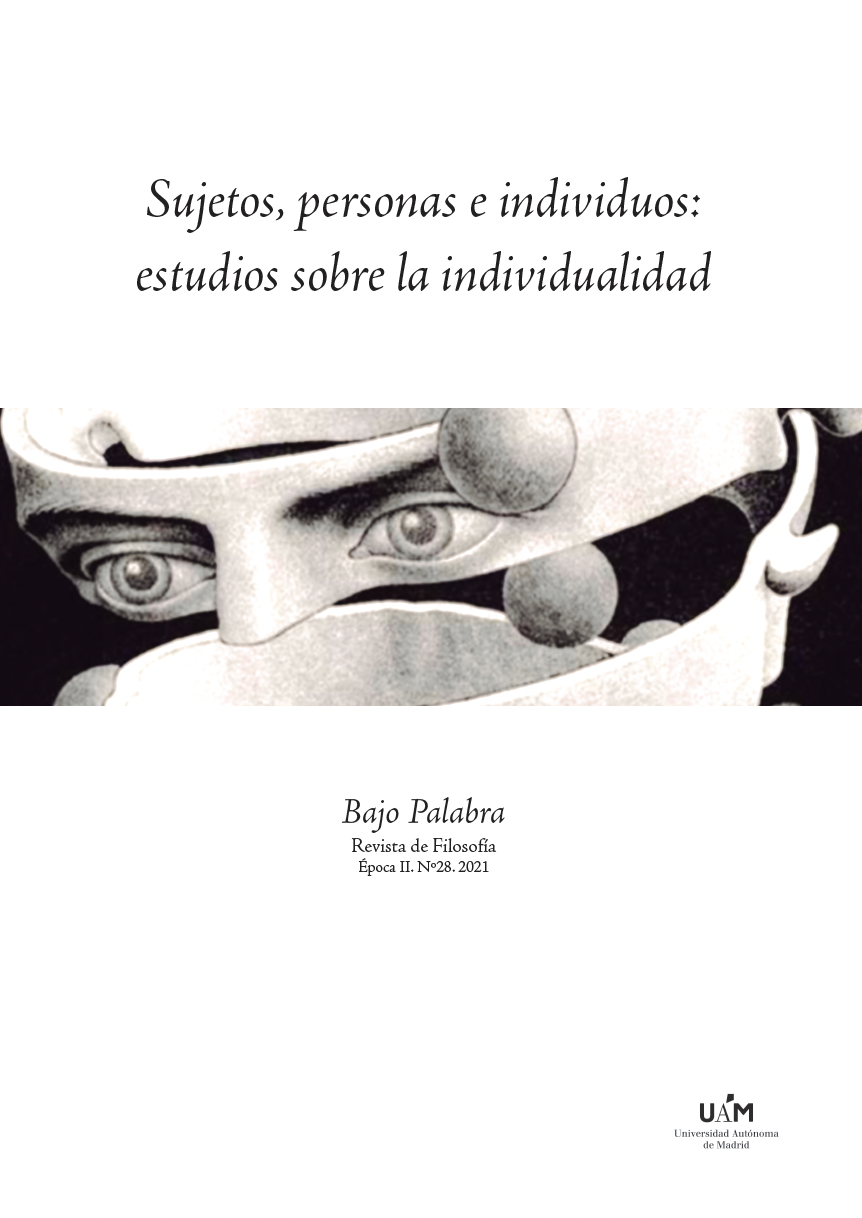Keywords:
self-consciousness, expression, , referenceCopyright (c) 2021 Ángel García Rodríguez

This work is licensed under a Creative Commons Attribution 4.0 International License.
Abstract
Self-consciousness is the cognitive
capacity to be aware of oneself as oneself,
as paradigmatically manifested in a
certain use of the first-person pronoun.
According to the proposal defended
here, it is not a self-referential, but an expressive
use. This is not to say that one
cannot refer to oneself by means of the
first-person pronoun; only that the result
of such a use will not be the expression of
a self-conscious thought. For that reason,
several varieties of thought about oneself
must be distinguished.
Downloads
References
Anscombe, G.E.M. (1975). The first person. Reimpreso en Q. Cassam (ed.),
Self-knowledge. Oxford University Press, pp. 140-159.
Austin, J.L. (1961). Performative utterances, Philosophical papers, Oxford University
Press.
Bermúdez, J.L. (2005). Evans and the sense of ‘I’, en Bermúdez (ed.), Thought, reference
and experience: Themes from the philosophy of Gareth Evans. Clarendon Press,
pp. 164-194. https://doi.org/10.1093/acprof:oso/9780199248964.003.0006
Campbell, J. (1994). Past, space and self. MIT Press. https://doi.org/10.7551/
mitpress/5262.001.0001
Cassam, Q. (1997). Self and world. Clarendon Press.
de Gaynesford, M. (2004). On referring to oneself, Theoria, vol. LXX, pp. 121-
https://doi.org/10.1111/j.1755-2567.2004.tb00986.x
Evans, G. (1982). The varieties of reference. Clarendon Press.
García Rodríguez, Á. (2021). How emotions are perceived, Synthese (en prensa).
https://doi.org/10.1007/s11229-021-03209-1
McDowell, J. (1998). Referring to oneself. Reimpreso en The Engaged Intellect.
HUP, pp. 186-203.
O’Brien, L. (1995). The problem of self-identification, Proceedings of the Aristotelian
Society, vol. 95, pp. 235-251. https://doi.org/10.1093/aristotelian/95.1.235
O’Brien, L. (2007). Self-knowing agents. Oxford University Press. https://doi.
org/10.1093/acprof:oso/9780199261482.001.0001
Peacocke, Ch. (1979). Being known. Oxford University Press. pp. 33-50 https://
doi.org/10.1093/0198238606.001.0001
Perry, J. (1979). The problem of the essential indexical. Reimpreso en The problem
of the Essential Indexical and Other Essays. Oxford University Press.
Rödl, S. (2007). Self-consciousness. HUP.
Sainsbury, R.M. (2011). English speakers should use ‘I’ to refer to themselves,
en A. Hatzimoysis (ed.), Self-knowledge. Oxford University Press. pp. 246-260.
https://doi.org/10.1093/acprof:oso/9780199590728.003.0013
Strawson, P. (1959). Individuals: An essay in descriptive metaphysics. Methuen.
Strawson, P. (1994). “The first person - and others”, en Q. Cassam (ed.),
Self-knowledge. Oxford University Press. pp. 210-215.
Wittgenstein, L. (1958). The blue and brown books. Blackwell.

